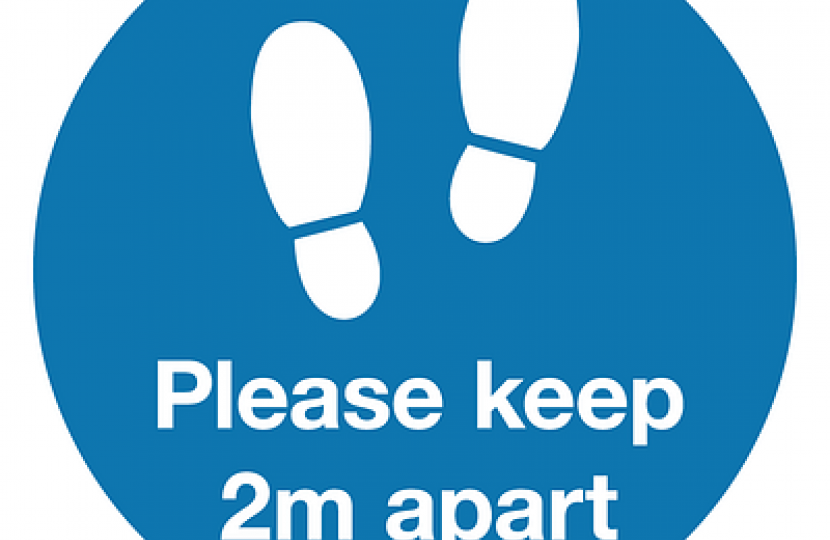
Social distancing
To reduce the risk of catching or spreading coronavirus, you should minimise time spent outside your home, and when around other people ensure that you are two metres apart from anyone not in your household or support bubble. Social distancing is essential to stop the spread of the virus, as it is more likely to spread when people are close together. An infected person can pass on the virus even if they do not have any symptoms, through talking, breathing, coughing or sneezing.
When with people you do not live with, you should also avoid: physical contact; being close and face-to-face; and shouting or singing close to them. You should also avoid crowded areas with lots of people; and touching things that other people have touched.
Where you cannot stay 2 metres apart you should stay more than 1 metre apart, and take additional steps to stay safe. For example:
- wear a face covering: on public transport and in many indoor spaces, you must wear a face covering by law, unless you are exempt
- move outdoors, where it is safer and there is more space
- if indoors, make sure rooms are well ventilated by keeping windows and doors open
You do not need to be socially distanced from anyone in your household, meaning the people you live with. You also do not need to be socially distanced from anyone in your support bubble, if you are in one.
You should try to maintain social distancing if providing informal childcare within a childcare bubble. However, when providing care to a young child, or person with a disability or health condition who is not in your household or support bubble, it may not always be possible or practicable to maintain social distancing. You should still limit close contact as much as possible when providing these types of care, and take other precautions such as washing hands and opening windows for ventilation.
Social contact
From 5 November, you must not meet socially indoors with family or friends unless they are part of your household, meaning the people you live with, or your support bubble.
This includes anyone you are in an established relationship with but do not live with - unless they are in your support bubble. Couples that do not live together and are not in a support bubble with each other can continue to see each other outdoors.
You can exercise outdoors, or visit outdoor public places, with the people you live with, your support bubble, or 1 person from another household. Children under 5, and up to two carers for a person with a disability who needs continuous care are not counted towards the gatherings limit on two or more people meeting outside.
Outdoor public places include:
- parks, beaches, countryside
- public gardens (whether or not you pay to enter them)
- allotments
- playgrounds
You cannot meet in a private garden.
Meeting in larger groups is against the law apart from specific exceptions where people from different households can gather in groups. The police can take action against you if you meet in groups. The relevant authorities, including the police, will have powers to enforce the law – including through fines and dispersing gatherings.
You can be fined £200 for the first offence, doubling for each further offence up to a maximum of £6,400. If you hold, or are involved in holding, an illegal gathering of over 30 people, the police can issue fines of £10,000.
